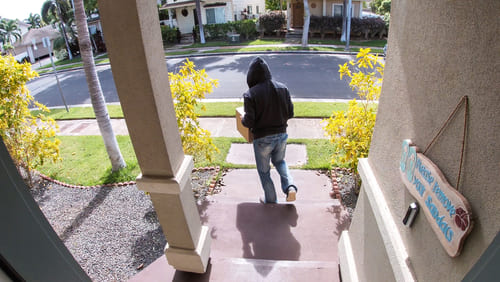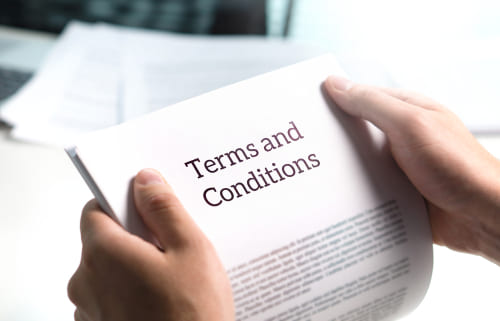Recent Blog Posts
Dealing with False Accusations of Domestic Violence
 It can be extremely stressful having the police show up at your home suspecting you of domestic violence. There are countless reasons why someone might make false accusations about something so serious. They might be mad at you and hope to punish you, they might think it could help them later on in a future divorce settlement if it seems like you were abusive, and they might even be an abuser themself and hope that pretending instead to be a victim can help them get out of trouble. Regardless, false accusations can have severe consequences and criminal charges. If you are facing false accusations of domestic abuse, speak with an experienced Wisconsin criminal defense attorney who can fight hard for your rights.
It can be extremely stressful having the police show up at your home suspecting you of domestic violence. There are countless reasons why someone might make false accusations about something so serious. They might be mad at you and hope to punish you, they might think it could help them later on in a future divorce settlement if it seems like you were abusive, and they might even be an abuser themself and hope that pretending instead to be a victim can help them get out of trouble. Regardless, false accusations can have severe consequences and criminal charges. If you are facing false accusations of domestic abuse, speak with an experienced Wisconsin criminal defense attorney who can fight hard for your rights.
What Should You Do?
In America, we like to say that we consider everyone innocent until proven guilty. Unfortunately, it becomes harder to do when someone is accused of a serious crime. Even without any background information or more extensive knowledge, the very fact that you have been accused can be enough for many people to judge you as if it has been proven beyond all doubt that you committed domestic violence.
Dissipation of Assets in Wisconsin
 When married couples go through a divorce, they need to come up with a plan for how they will divide their assets and property. It is an essential part of a divorce settlement. However, sometimes one spouse does something to reduce the value of the marital estate, which impacts a fair division. You might think you have a certain amount of value in your marital estate and then discover it is much less than it should be. If you think your spouse has actively dissipated assets in an attempt to manipulate your future divorce, speak with an aggressive Wisconsin divorce lawyer who will fight for fair compensation in a settlement.
When married couples go through a divorce, they need to come up with a plan for how they will divide their assets and property. It is an essential part of a divorce settlement. However, sometimes one spouse does something to reduce the value of the marital estate, which impacts a fair division. You might think you have a certain amount of value in your marital estate and then discover it is much less than it should be. If you think your spouse has actively dissipated assets in an attempt to manipulate your future divorce, speak with an aggressive Wisconsin divorce lawyer who will fight for fair compensation in a settlement.
What is the Dissipation of Assets?
A general description of dissipation of assets is when one spouse uses marital assets in a way that benefits them only outside of the marriage. This can happen in various ways. Some examples are:
Is Birdnesting a Good Option for My Family?
 We have all heard horror stories about parents who turn into each other’s sworn enemies during a divorce. They go to court hoping to make the other person suffer, and their marriage ends with a lot of anger. Luckily, that is not always the case. There are countless examples of divorced couples who still manage to respect each other. This becomes even more beneficial if there are children involved. If parents can work together to find a child custody arrangement that benefits everyone, it can help them offer their child stability. If you fall under this second category, birdnesting might be a good option for your family to consider. Speak with a knowledgeable Waukesha County, WI child custody lawyer to find out more.
We have all heard horror stories about parents who turn into each other’s sworn enemies during a divorce. They go to court hoping to make the other person suffer, and their marriage ends with a lot of anger. Luckily, that is not always the case. There are countless examples of divorced couples who still manage to respect each other. This becomes even more beneficial if there are children involved. If parents can work together to find a child custody arrangement that benefits everyone, it can help them offer their child stability. If you fall under this second category, birdnesting might be a good option for your family to consider. Speak with a knowledgeable Waukesha County, WI child custody lawyer to find out more.
Why Choose Birdnesting?
When parents go through a divorce, they need to figure out child custody arrangements. They need to answer questions including:
Getting a Juvenile Criminal Record Expunged in Wisconsin
 People can make serious errors of judgment when they act without thinking about the consequences. While that is true for everyone, it is especially true for youth whose brains are still developing and who have yet to learn the full weight of responsibility. Learning from your mistakes is a part of growing up and becoming an adult, but for some people, these mistakes can result in a criminal record that could haunt them well into the future.
People can make serious errors of judgment when they act without thinking about the consequences. While that is true for everyone, it is especially true for youth whose brains are still developing and who have yet to learn the full weight of responsibility. Learning from your mistakes is a part of growing up and becoming an adult, but for some people, these mistakes can result in a criminal record that could haunt them well into the future.
People with criminal records can face difficulties years after their crimes when applying for college, jobs, housing, and even when dating. Fortunately, under certain conditions, the state of Wisconsin will grant a request to have a juvenile record expunged. That means the person’s name will be removed from all the records. This article will explain the process of requesting expungement, but if you have a juvenile record, speak with a skilled Waukesha, WI criminal defense attorney to understand your options.
Can My Spouse Evict Me From Our Home in a Wisconsin Divorce?
 In high-conflict divorces, it is not uncommon for a spouse to want to force the other spouse out of the home. Being ordered to leave the house by your spouse can be frightening, especially if you have no other living arrangements. This article will discuss your rights in Wisconsin if you are evicted by your spouse during a divorce.
In high-conflict divorces, it is not uncommon for a spouse to want to force the other spouse out of the home. Being ordered to leave the house by your spouse can be frightening, especially if you have no other living arrangements. This article will discuss your rights in Wisconsin if you are evicted by your spouse during a divorce.
If your spouse is threatening you with eviction, reach out to a Wisconsin divorce attorney as soon as possible.
Who Does the House Belong to?
Under Wisconsin law, the house that a couple lives in while they are married — called the marital home — belongs to both spouses. This is the case even if only one party’s name is on the lease or mortgage. The house is by default considered marital property and one spouse cannot kick the other spouse out.
What is Retail Theft and How Is It Punished in Wisconsin?
 If you leave a store with merchandise and forget to pay, you are not guilty of retail theft. This is because, under Wisconsin law, there must be intent to steal for it to be considered retail theft.
If you leave a store with merchandise and forget to pay, you are not guilty of retail theft. This is because, under Wisconsin law, there must be intent to steal for it to be considered retail theft.
However, the retailer does not know your intentions. Although it does sometimes happen that people forget to pay for an item, a store owner may not believe you when you say “I forgot to pay.” Under the law, a merchant is allowed to detain you at the store until the police arrive if he or she believes you tried to commit retail theft.
This is why, if you are accused of retail theft, it is important to contact a criminal defense attorney as soon as possible to start building your defense.
What is Considered Retail Theft?
The most common form of retail theft is removing merchandise from a store without the consent of the owner and with intent to steal. This is called shoplifting. However, there are other forms of retail theft as well, such as:
Will My Bipolar Diagnosis Cost Me Child Custody?
 When it comes to questions about child custody, the general rule is that Wisconsin law will side with whatever is in the child’s best interest. That being said, there are a host of factors that can affect that, which is why it is best to direct any questions to an experienced family law attorney.
When it comes to questions about child custody, the general rule is that Wisconsin law will side with whatever is in the child’s best interest. That being said, there are a host of factors that can affect that, which is why it is best to direct any questions to an experienced family law attorney.
One of the factors that can sometimes affect child custody arrangements is the mental health of relevant parties, including the child. This is still a very nuanced issue, however, and no Wisconsin law discriminates against a parent for having a mental disorder. If that parent’s behavior affects the child negatively, however, the diagnosis may come up in court.
It is important to note that if you already have a child custody arrangement and then are diagnosed with a mental disorder, that alone is not likely to cost you parenting time. If you are embroiled in a custody dispute, however, your co-parent may attempt to use it against you.
4 Things to Know if You Are Caught with Fentanyl in Wisconsin
 Being caught in possession of controlled substances is a serious crime that can result in prison time and/or heavy fines. Wisconsin law prescribes certain punishments for drug possession based on several factors, including:
Being caught in possession of controlled substances is a serious crime that can result in prison time and/or heavy fines. Wisconsin law prescribes certain punishments for drug possession based on several factors, including:
-
The type of drug
-
The weight of the drug
-
Whether there is intent to distribute, deliver, or manufacture
Someone who is charged with illegal drug possession like fentanyl in Wisconsin should hire an experienced criminal defense lawyer who understands the criminal justice system well.
What is Fentanyl?
Fentanyl is a narcotic considered to be 50 times stronger than heroin and 100 times more powerful than morphine. It has been approved by the Food and Drug Administration (FDA) for pain relief and anesthesia. Fentanyl is also classified as a Schedule II substance, along such drugs as methamphetamine, morphine, and oxycodone.
Does Having a Prenuptial Agreement in Place Result in a Quicker Divorce in Wisconsin?
 Prenuptial agreements have long been a topic of interest and discussion in marriage and divorce. In Wisconsin divorce, where laws can be complex and time-consuming, many wonder if having a prenuptial agreement in place can make the divorce process faster. If you are pursuing a divorce in Wisconsin, our highly trained attorneys are ready to assist you, regardless of whether you signed a prenuptial agreement before the marriage or not.
Prenuptial agreements have long been a topic of interest and discussion in marriage and divorce. In Wisconsin divorce, where laws can be complex and time-consuming, many wonder if having a prenuptial agreement in place can make the divorce process faster. If you are pursuing a divorce in Wisconsin, our highly trained attorneys are ready to assist you, regardless of whether you signed a prenuptial agreement before the marriage or not.
At Bucher, Wolff & Sonderhouse, LLP, our team of legal professionals is well-versed in Wisconsin divorce and family law. Their robust understanding of legal procedures involved in divorce cases allows clients to feel confident that their rights and interests will be protected throughout the case.
What You Need to Know About High-Asset Divorce in Wisconsin
 A high-asset divorce in Wisconsin is characterized by the presence of substantial wealth and complex financial holdings that require careful evaluation and division during divorce proceedings. When the marital estate includes valuable assets such as multiple properties, business interests, investment portfolios, and significant income streams, the divorce is considered high-asset. The stakes are higher in such cases, and the legal proceedings can be more complicated. If you are preparing for a high-asset divorce in Wisconsin, contact an experienced attorney for assistance.
A high-asset divorce in Wisconsin is characterized by the presence of substantial wealth and complex financial holdings that require careful evaluation and division during divorce proceedings. When the marital estate includes valuable assets such as multiple properties, business interests, investment portfolios, and significant income streams, the divorce is considered high-asset. The stakes are higher in such cases, and the legal proceedings can be more complicated. If you are preparing for a high-asset divorce in Wisconsin, contact an experienced attorney for assistance.
At Bucher, Wolff & Sonderhouse, LLP, our attorneys have a robust understanding of Wisconsin family law. Attorney Wolff and Attorney Sonderhouse have both lived and worked in the state for decades and, as a result, know the court systems, judges, procedures, and even opposing divorce attorneys in the area. This type of knowledge can be instrumental in ensuring clients have the best chance possible at obtaining a favorable case outcome.









 262-232-6699
262-232-6699





